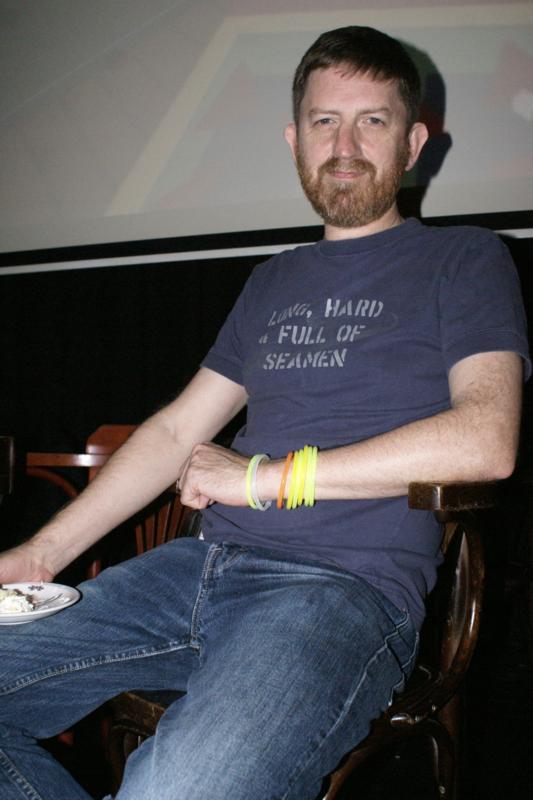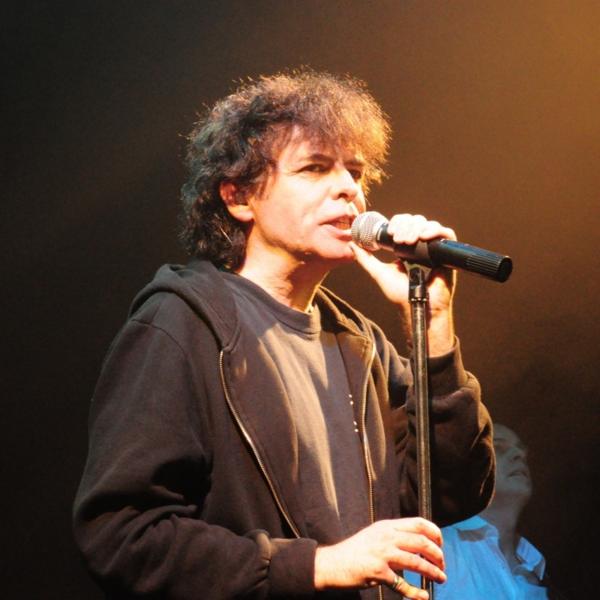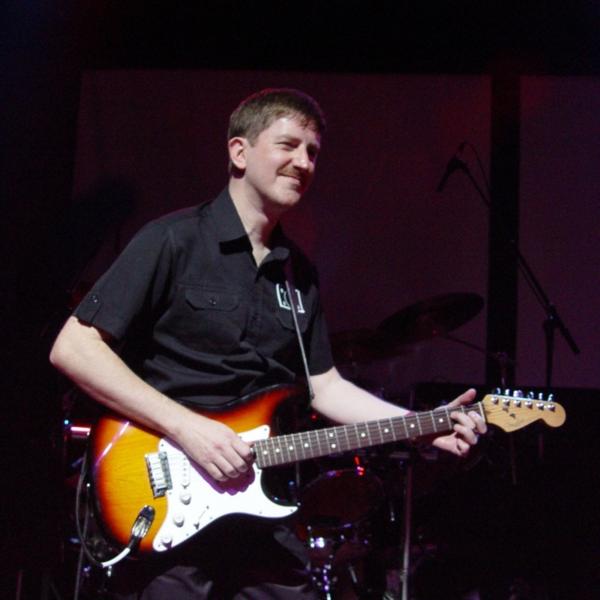|
Nostalgia: IQ - The Wake “It's a snapshot of were IQ were at the time and as such I think The Wake is quite successful” (July 2011, text and backstage pictures by Henri Strik, edited by Peter Willemsen, live pictures by Arthur Haggenburg) Back in 1985 IQ recorded their second album The Wake, and their first masterpiece. In 2010 it got a 25th anniversary edition (see review) and a live release on CD/DVD from a concert performed in The Netherlands. It includes an entire version of the album, but now performed on state of the art equipment. I always wanted to do an interview with IQ about this excellent album. Finally Mike Holmes (MH) and Peter Nicholls (PN) were willing to talk about the time the original album was released. Did you already play songs from The Wake during live concerts before the album was released? Did you play the album as a whole in these days as well? MH: “Yes, we've played the separate tracks from The Wake at various gigs in our career, but we've never actually played it as a whole album in its entirety before.”Does The Wake have a kind of story, a concept or a theme? MH: “Well, very roughly. The central character dies at the end of the first track, but doesn't actually manage to complete his journey to... well, wherever it is you go when you die, and the rest of the album he's trying to find a way to get back... Peter always talks about the very end of Outer Limits as being a kind of a bridge that's just one step too far. You can hear the breathing stop during the transition between Outer Limits and The Wake. At least I think that's what it's all about! There's some vagueness about what actually happens in the end, depending on who you talk to in the band. I quite like the idea of the happy ending being that the character actually manages to die successfully...”PN: “The main theme of the album is death, which was one of my preoccupations at the time of writing The Wake. The central character dies at the end of Outer Limits, the opening song, and the story is built around what happens to his soul from that point. There was a short story by Edgar Allan Poe called The Premature Burial which was lodged somewhere in my brain, and that was one of the starting points for The Wake. As with all stories, the concept was a mixture of various influences and ideas and although death wasn't a particularly positive theme for an album, it worked well as a way of connecting the songs we were writing.” Can you describe what the songs are about separately? MH: “Actually probably not! I had enough of an idea about the tracks when we were recording them to interpret them musically, but to be honest the detail of the story kind of resides in Peter's mind. I can tell you that Widow's Peak is about being buried alive...”PN: “It isn't easy to describe what each track is about lyrically as the words were deliberately written to be a series of impressions, rather than a linear story. But very loosely: 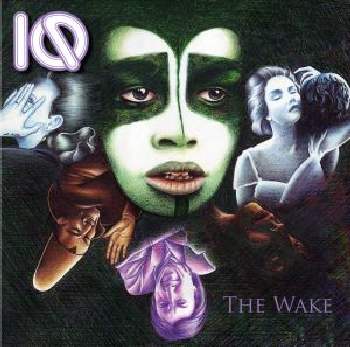 Outer Limits: this song deals with the main
character dying and there's an image of a narrow bridge which he has to cross.
If he gets to the other side, he reaches a place of safety, let's call it
Heaven, but if he falls from the bridge he ends up in Hell.
Outer Limits: this song deals with the main
character dying and there's an image of a narrow bridge which he has to cross.
If he gets to the other side, he reaches a place of safety, let's call it
Heaven, but if he falls from the bridge he ends up in Hell. The Wake : this is an angry song; his soul is confused and lost and doesn't understand what's going on. My original working title for this track was Rant. The Magic Roundabout : in this track he's wishing he could communicate with his wife, trying to tell her everything will be okay. Corners: here the main character finds his soul going through a trippy, other-world kind of experience. Widow's Peak : this one refers to the character's widow. She finds out that he was buried alive and that's how he came to die. He's still trying to reach out across death. The Thousand Days : in this track there's a turning point where his soul feels that, rather than wandering aimlessly, it might be re-born, which is what happens in the following song. Headlong : this is all about giving the story a resolution: spirit, bear me away to the place of birth.” How did it happen that Dave Stewart lent his sitar guitar for the recordings of the album? MH: “Dave happened to be a friend of Harun, the engineer. I knew that I wanted that kind of sound for Corners and I asked him if he could source a sitar, or maybe a sitar guitar. Luckily Dave Stewart was perfectly okay with some unheard of young band borrowing his equipment!”Was The Wake a difficult album to record? Why did you produce the album yourself? MH: “Well, it was difficult since we didn't really have a lot of experience in the studio. Tales From The Lush Attic was recorded and mixed in five days and it was such hurry that I personally didn't really get a lot out of it, apart from how not to do something... Having said that, I had a good idea of how I wanted it to sound, and felt that I could provide a better, more personal overview for the project, rather than getting an outsider in to work on the production. It was certainly refreshing to have a bit more time to try different ideas out in the studio. The Wake doesn't sound particularly technically clean, and we certainly made some mistakes along the way, but one thing it does have in abundance is atmosphere, which was really what I was going for.”Were you satisfied with the way the album was recorded or did you have plans to re-record it with modern equipment? MH: “Hmm, to be honest I have to say no, I'm not completely happy with the final outcome, but then I'm not sure that a producer is ever one hundred percent happy with something. I've always wanted more time in the studio to work on projects, but at the end of the day we're all constrained by budgets and time scales. Someone once said to me that the difference between a great producer and a good one is time... If I was recording The Wake now I'd certainly do a lot of things differently, but I'm not in a rush to re-record it. It's a snapshot of where IQ were at the time, and as such I think it's quite successful.”
Peter, you did the original art work. What inspired you to create this great piece of art? PN: “The main face was inspired by a film at the time called Quest For Fire. I used a photo from the film as a starting point, than adapted it for the artwork. I only discovered several years later that some of the band members thought the face was mine, and that I'd decided to put a big picture of me on an IQ-album cover! Of course that isn't true. The other images around the main face were added as representations of some of the lyrics on the album.”Who inspired you back then to record such a masterpiece? Are there any bands that influenced you? MH: “Well, it's kind of you to say that, but we didn't really give any thought to it being a masterpiece. Our main concern was that it was a suitable follow-up to Tales From The Lush Attic. The term 'influence' always sounds a bit strange to me. I'm never quite sure if people actually mean 'what did you like to listen to' rather than 'what were your influences'. I can never tell where a'like' turns into an 'influence'! Personally I've always found Brian Eno very inspirational - he has a certain attitude and approach to his work that resonates with me.I think one of the reasons IQ has always been an individual band, slightly away from the other prog bands, is that we have such a diverse range of musical likes among the five individuals. As a collection of individuals we were listening to everything: rock, prog, eighties pop, dance, classical, AOR and so on. I suppose it all found a way into the music in one way or another.” Did you ever perform a live show of the original album as a whole after it had been released? MH: “No, we always intended to do that, but other things always got in the way. The first time we ever played the album as one piece was on the 25th anniversary tour last year.”Don't you think The Wake is the best album you ever recorded? MH: “No, I really don't think it is... I suppose we all have our favourites.”How did the album sell in 1985 and how did the press and the public react? MH: “As I remember it was very favourably reviewed, and it certainly went down well with the growing number of IQ-fans. The sales were pretty good too, although we were never sure of the exact figures because our management were handling that side of things for us - perhaps the less said about that the better! It went into the 'indie' charts in Melody Maker at number 3, which we were quite proud of...”Peter, why did you leave the band after the release of The Wake? PN: “During the recordings of The Wake, relationships within the band had really broken down and I was very uncomfortable with it all. I felt separated from the rest of the band. We couldn't talk to each other and it was a very dark time for us on a personal level, even though the music we were creating together was great. I had many reasons for wanting to stay in IQ. I was very pleased with the album and it felt like the band was starting to get somewhere, but I wasn't happy and I needed to make the break. I'm sure that if I hadn't left, someone else would have. I know Martin Orford, our keyboard player, was also unhappy at the time. Something had to give, and I decided it had to be me.”MH: “At the time we were all living in a flat together. When you're working intensely on a creative process and also spending most of the time socializing together, it's important to find some personal space away from the whole setup. That was really difficult to do in our situation.” | ||
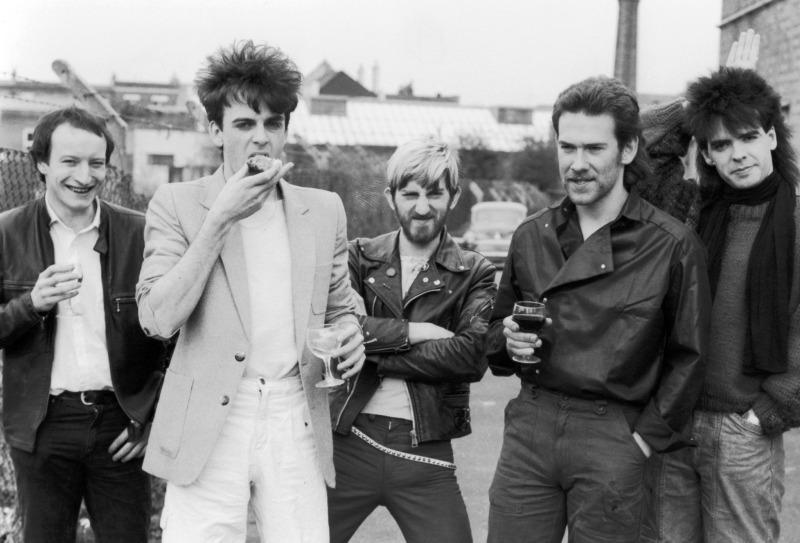
| ||
| IQ 1985, from left to right: Martin Orford, Tim Esau, Mike Holmes, Paul Cook, Peter Nicholls. | ||
|
How do you look back at this period of time in the history of the band? MH: “It was a great time for the band; we'd just recorded a great second album, toured it extensively and were playing to more and more people at our own gigs. It's not often that people appreciate what they have in their lives actually at the time. We tend to look back and think 'those were the days...' rather than 'this is a good thing happening now'. But I remember thinking at one point during that period that it was a really special time and that we'd be looking back with a lot of fondness to this point in our career.”Can you tell an anecdote from those days? MH: “Mmm, I'm not great at remembering things like that, particularly with reference to the band. I remember the flat we were living in at the time was pretty awful: holes in the wall, rising damp in the bedroom and on the bed and dead mice in the toaster...”PN: “The recording of The Wake was definitely not a happy time; I remember it being very tense. I can hear the tension in my singing on the album. So I can't honestly recall any good anecdotes from the actual recording of the album. Even though the British tour we did to support the release of The Wake was very hard work and not all of it was enjoyable. I do have fond memories of some of the concerts, especially The Marquee and Hammersmith Odeon in London.”
When Peter left the band, IQ performed the songs of The Wake with the new singer Paul Menel. Can you tell the differences between these two performers? MH: “There's bound to be a difference in style between two singers, but more than that I think Paul was keen to work on new material and didn't really want to sing lyrics written by someone else. Paul brought different things to IQ, but I think he never really felt as passionate about singing those songs as Peter did.”As far as I can remember the album got a first CD-release by Samurai Records and a second one by Giant Electric Pea. Weren't you satisfied with the first release? What was the main reason to release it yourself? MH: “Samurai only had the rights to sell The Wake for a certain amount of time; we wanted to make sure that people were still able to get hold of it. I also think that the remastering process helped the sound.”Did you record or write material for The Wake that was never used? MH: “No, though there were one or two odd bits of music kicking around, most of which made it onto subsequent albums, or appeared as outtakes in the 25th anniversary box set release of The Wake.”Who came with the idea to release a 25th anniversary edition? MH: “I think it was my idea... it just seemed that there was so much stuff that people would actually be interested in hearing. And, as a fan of different bands, I always liked the idea of getting hold of a 'definitive' copy of a favourite album.”How long did it take to complete the whole deluxe edition finding old material and creating the art work? MH: “The whole thing took about six months: sourcing the extra material, putting it together in a coherent way, doing the artwork and content of the booklet, filming and putting together the commentary video and other stuff on the DVD and making a multi-track version of Corners available for everyone to try their hand at mixing. That was a cool idea I thought! At the time we all had day jobs, so the work on the box set had to be done in our spare time.”Was it difficult to retrace the old live footage and demo recordings? MH: “Yes and no. It took a while to compile it all, but there was no shortage of people who came up with the various bits, although a large part of it came from Peter.”Do you have special memories of playing the material from The Wake? Was it difficult to perform the album in its entirety again in Zoetermeer on June 19, 2010? MH: “Actually I really enjoyed playing The Wake in its entirety; it was similar to playing the Subterranea-show in that everything was planned out for a set period of time and we all knew exactly where we needed to be and what we needed to do.”Can we expect more anniversary deluxe editions of old IQ-releases in the future? MH: “We're planning on doing something for the 30th anniversary of Tales From The Lush Attic. I've recently got hold of the original 24-track master for that album and I'd really like to spend a bit of time to finally do a decent mix of it. Don't know whether it'll be another four-disc set or not, but I'd like to have a go at finally presenting 'Tales' as I've always thought it should be...”Thank you both for answering my questions. MH & PN: “It's our pleasure, thank you.”More info about IQ on the Internet: IQ Website samples review concert 25-Apr-09 review album 'The Wake: 25th Anniversary Deluze Edition' review album 'Frequency' review 'The Lens - Regeneration' |
